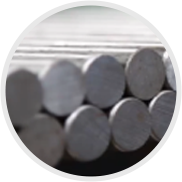 Afrikaans
Afrikaans  Albanian
Albanian  Amharic
Amharic  Arabic
Arabic  Armenian
Armenian  Azerbaijani
Azerbaijani  Basque
Basque  Belarusian
Belarusian  Bengali
Bengali  Bosnian
Bosnian  Bulgarian
Bulgarian  Catalan
Catalan  Cebuano
Cebuano  Corsican
Corsican  Croatian
Croatian  Czech
Czech  Danish
Danish  Dutch
Dutch  English
English  Esperanto
Esperanto  Estonian
Estonian  Finnish
Finnish  French
French  Frisian
Frisian  Galician
Galician  Georgian
Georgian  German
German  Greek
Greek  Gujarati
Gujarati  Haitian Creole
Haitian Creole  hausa
hausa  hawaiian
hawaiian  Hebrew
Hebrew  Hindi
Hindi  Miao
Miao  Hungarian
Hungarian  Icelandic
Icelandic  igbo
igbo  Indonesian
Indonesian  irish
irish  Italian
Italian  Japanese
Japanese  Javanese
Javanese  Kannada
Kannada  kazakh
kazakh  Khmer
Khmer  Rwandese
Rwandese  Korean
Korean  Kurdish
Kurdish  Kyrgyz
Kyrgyz  Lao
Lao  Latin
Latin  Latvian
Latvian  Lithuanian
Lithuanian  Luxembourgish
Luxembourgish  Macedonian
Macedonian  Malgashi
Malgashi  Malay
Malay  Malayalam
Malayalam  Maltese
Maltese  Maori
Maori  Marathi
Marathi  Mongolian
Mongolian  Myanmar
Myanmar  Nepali
Nepali  Norwegian
Norwegian  Norwegian
Norwegian  Occitan
Occitan  Pashto
Pashto  Persian
Persian  Polish
Polish  Portuguese
Portuguese  Punjabi
Punjabi  Romanian
Romanian  Russian
Russian  Samoan
Samoan  Scottish Gaelic
Scottish Gaelic  Serbian
Serbian  Sesotho
Sesotho  Shona
Shona  Sindhi
Sindhi  Sinhala
Sinhala  Slovak
Slovak  Slovenian
Slovenian  Somali
Somali  Spanish
Spanish  Sundanese
Sundanese  Swahili
Swahili  Swedish
Swedish  Tagalog
Tagalog  Tajik
Tajik  Tamil
Tamil  Tatar
Tatar  Telugu
Telugu  Thai
Thai  Turkish
Turkish  Turkmen
Turkmen  Ukrainian
Ukrainian  Urdu
Urdu  Uighur
Uighur  Uzbek
Uzbek  Vietnamese
Vietnamese  Welsh
Welsh  Bantu
Bantu  Yiddish
Yiddish  Yoruba
Yoruba  Zulu
Zulu conveyor belt scraper
The Importance of Conveyor Belt Scrapers in Material Handling
In modern industrial settings, conveyor belt systems are fundamental for efficient material handling. Used in various applications ranging from manufacturing to mining, these systems facilitate the transportation of materials over considerable distances. However, the effective operation of conveyor belts can be hindered by the accumulation of material on the belt surface, which can lead to inefficiencies, increased wear and tear, and potential safety hazards. This is where conveyor belt scrapers come into play.
What Are Conveyor Belt Scrapers?
Conveyor belt scrapers are essential components designed to clean the surface of a conveyor belt. They remove any residual material that sticks to the belt after it has been loaded and transported. These scrapers are typically made from durable materials such as rubber, polyurethane, or metal and are installed at appropriate points along the conveyor system, usually at the discharge end, to effectively scrape off materials before the belt returns to the loading area.
How Do Scrapers Work?
The operation of a conveyor belt scraper is relatively straightforward. As the conveyor belt moves, the scraper is positioned in a way that its blade makes contact with the belt’s surface. The force of the scraper removes the materials adhering to the belt, ensuring that only clean material is discharged into the intended receptacle. By maintaining a clean belt surface, scrapers help to minimize material loss, which is crucial for optimizing operational efficiency.
Benefits of Using Conveyor Belt Scrapers
1. Enhanced Efficiency By keeping the conveyor belt clean, scrapers significantly improve the efficiency of the conveyor system. A clean belt can transport more material without the risk of blockage or unnecessary friction.
2. Reduced Wear and Tear Material buildup can cause excessive wear on both the conveyor belt and its components. By implementing scrapers, companies can reduce the likelihood of malfunctions, elongate the lifespan of belts, and decrease maintenance costs.
conveyor belt scraper

3. Safety Improvements A clean working environment is essential for safety. Accumulated materials can create slip hazards and increase the risk of accidents. Scrapers mitigate these risks by ensuring that the working area remains clean and safe for personnel.
4. Environmental Benefits Material spillage from conveyor belts can have detrimental effects on the environment, contributing to pollution and resource wastage. By effectively removing excess material, scrapers help companies adhere to environmental regulations and promote sustainable practices.
Types of Conveyor Belt Scrapers
There are various types of conveyor belt scrapers available, each tailored for specific applications and materials. The primary categories include
1. Primary Scrapers These are the initial line of defense, usually installed directly at the discharge point of the conveyor. They are designed to handle large quantities of material and serve to remove the majority of leftover materials.
2. Secondary Scrapers After the primary scraper has done its job, secondary scrapers further clean the belt, removing residual materials that persist. These scrapers are crucial for applications where minimizing residue is vital.
3. Specialty Scrapers For niche applications, specialty scrapers may be required. These scrapers are designed to handle specific materials, such as sticky or abrasive substances that regular scrapers may struggle with.
Conclusion
Conveyor belt scrapers are small yet powerful components of material handling systems. Their role in maintaining clean conveyor belts cannot be overstated, as they contribute to operational efficiency, safety, and reduced environmental impact. For companies using conveyor systems, investing in high-quality scrapers is a prudent decision that yields significant long-term benefits. As industries evolve and face new challenges, conveyor belt scrapers will continue to be essential in ensuring optimized material handling processes across various sectors. By incorporating advanced scraper technology and practices, businesses can enhance productivity and sustainability in their operations.
-
Revolutionizing Conveyor Reliability with Advanced Rubber Lagging PulleysNewsJul.22,2025
-
Powering Precision and Durability with Expert Manufacturers of Conveyor ComponentsNewsJul.22,2025
-
Optimizing Conveyor Systems with Advanced Conveyor AccessoriesNewsJul.22,2025
-
Maximize Conveyor Efficiency with Quality Conveyor Idler PulleysNewsJul.22,2025
-
Future-Proof Your Conveyor System with High-Performance Polyurethane RollerNewsJul.22,2025
-
Driving Efficiency Forward with Quality Idlers and RollersNewsJul.22,2025





























